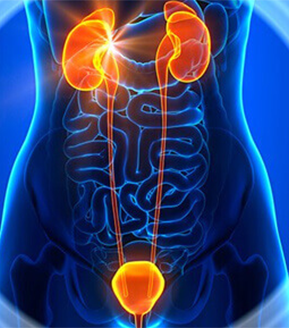- +91 93594 94102
- +91 63775 93771
-
Amrit Hospital, Gandhi Colony, Rudrapur
Male reconstructive urology (also called male genitourinary reconstruction) can be used to treat physical abnormalities, repair trauma related to major surgery or accidents, or manage certain bladder control problems like incontinence and overactive bladder.
Urethroplasty
Urethroplasty is a surgery where the urethra is reconstructed to cure problems like urethral strictures. The types of surgeries are varied and depend upon the location, cause, and length of the stricture. Most surgeries take between three to six hours to complete.Urethroplasty is an open surgical reconstruction or replacement of the urethra that has been narrowed by scar tissue and spongiofibrosis (urethral stricture). Urethroplasty is the gold standard for urethal reconstruction with the best and most durable results. A surgical procedure in which narrowed urethra is replaced or reconstructed by open surgery is known as urethroplasty.
Pyeloplasty
Pyeloplasty is surgery to correct a condition called ureteropelvic junction (UPJ) obstruction. “Pyelo” refers to the kidney (renal pelvis). “Plasty” is the term for a surgical procedure that repairs, restores or replaces something.
Who needs pyeloplasty?
Adults and children may need a pyeloplasty. One baby out of every 1500 is born with a UPJ obstruction. Twice as many males than females have it. For infants, if the condition doesn’t improve within 18 months, they will likely need pyeloplasty.
Ureteral Reimplantation
Ureteral reimplantation is used to treat reflux, a condition in which urine from the bladder is able to flow back up into the kidneys through the tubes that connect the kidneys with the bladder.
Several factors can lead to surgical correction, including:
- The child does not tolerate antibiotics.
- Urine infections occur despite being on antibiotics.
- The reflux continues over several years of monitoring, i.e. the child does not “grow out of it”.
- The kidneys do not grow normally or start to develop scars on medical treatment alone.
- Parents request surgery as an alternative to medical treatment.
Vesicovaginal Fistula
A fistula is an unwanted opening that develops between two parts of the body. Causes of fistulas can include infections, injuries and inflammation. They can occur in many parts of the body.
A vesicovaginal fistula is an opening that develops between the bladder and the wall of the vagina.
What causes a vesicovaginal fistula
Vesicovaginal fistulas are often a complication after surgery to treat problems in the bladder or vagina. They also can be linked to gynecological cancer, either from the disease or sometimes as a side effect of radiation therapy or surgery to treat the cancer. Particularly bad or repeat urinary tract infections can sometimes lead to fistulas too, but this is rare.
